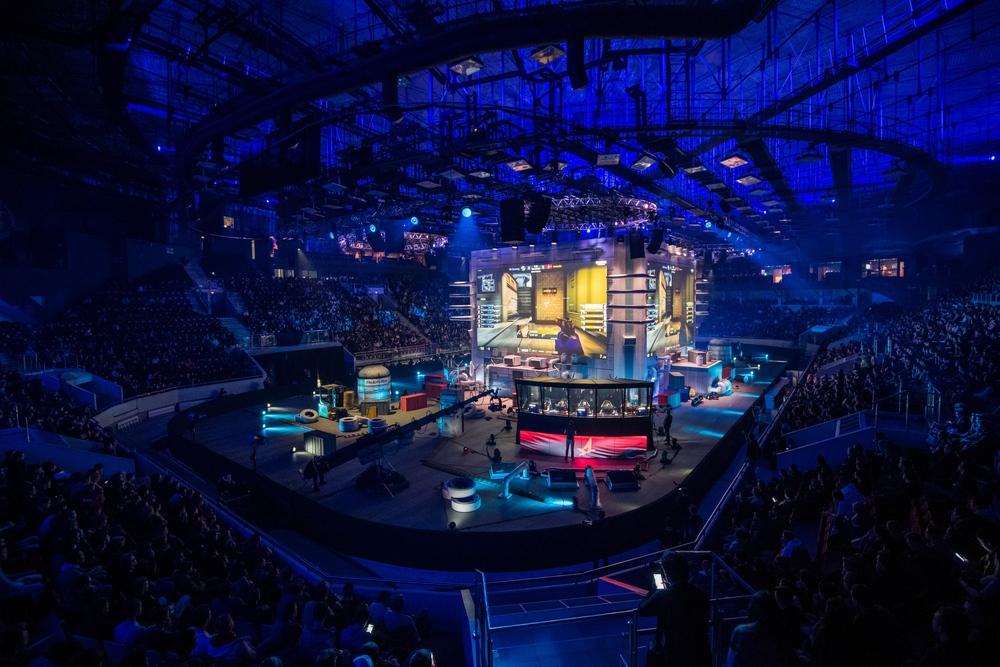Expanding commercial capabilities, all sports clubs and organisations have been forced to optimise brand dynamics, seeking to create stronger bonds with fanbases, audiences and communities.
Competing for high-value contracts, sports clubs have to prove its value to marketing partners who will assess all elements related to coverage, exposure and ROI in order to gain the most out of a deal.
Moreover, in recent years a burgeoning esports scene has entered the world of sports sponsorships. Though clubs may see esports as a bridge to new audiences, how should brands approach this blossoming yet unpredictable sector?
Alex Beazley-Long, the Creative Strategist at Imagination, an organisation which specialises in brand experiences, spoke to Insider Sport to discuss why brands should engage with esports and the potential crossover between firms which partner with traditional sports.
Beazley-long stated: “Esports is an opportunity for brands to get involved early with a sector that is going to grow exponentially over the next couple of years. Business Insider reports the esports ecosystem is on track to surpass $1 billion in revenue for the first time this year and most project it to hit $1.8 billion by 2022. Time is running out to be an authentic partner as opposed to jumping on the bandwagon.
“Whilst sports and esports differ in fundamental ways, a unifying factor is the level of emotional intensity on display. Whilst brands need to know when to step aside and let the contest play out, being there with fans for the highs and lows can create lifelong advocacy. Also, this is no longer a niche industry: with an estimated audience of 450 million that is growing by the day as outlined in Newzoo’s 2019 global esports market report.”
Traditional sports, particularly in football, feature multi-layered brand activations which can vary from typical shirt sponsorships to companies actively using a sporting organisation in order to enhance its identity. As brand activation evolves, the sectors being integrated will also broaden hence why more brands have identified esports as a potential entity to promote products to a younger generation.
A prime example is BMW, a firm with strong ties with golf’s PGA European Tour, which recently announced a global partnership with five of League of Legends organisations in an attempt to modernise the company’s image to the game’s audience.
Beazley-long continued: “As we have seen in the sports industry, sponsorship has moved beyond simply writing a cheque in return for naming rights. Visa has used its association with FIFA to commit to an equal investment in men’s and women’s football at a grassroots level, whilst Red Bull now own and operate several sports teams and league. Brands should be thinking about partnering with esport teams, talent and broadcasters that share their values.”
Recent circumstances have brought more eyes to the esports industry with various sporting organisations hosting competitions and events around competitive gaming to retain fan engagement. Competitions such as F1’s Virtual Grand Prix, the eNASCAR series and various league organised FIFA competitions have increased esports’ fanbase, providing a prime opportunity for brands of those sporting organisations to create activations around the sector.
“People are gaming more than ever before,” added Imagination’s creative strategist.
“According to Verizon, overall video-game internet traffic has increased 75% since restrictions were imposed in America. An increase in people gaming, potentially for the first time, will inevitably create more fans of esports, only increasing its value to brands. Along with this, esports can very easily be conducted remotely, meaning they will be a safe bet for brands in a pandemic economy.”
Whilst esports is certainly a hot commodity in the short-term, there are worries that its recent growth due to the pandemic could decline once live-sport resumes. This could possibly prompt certain brands to hold off on sponsoring certain esports. In particular the sports-centric titles such as FIFA, NBA 2K and F1 which have grown due to tournaments and competitions being organised by clubs and leagues.
Nevertheless, it all depends on what the brand is wanting to achieve from its deal as while both industries share similar letters, how the firm’s benefit from them are completely different.
Beazley-long explained “I think for now the opportunity lies in the specific audience and unique experience of esports. While esports may one day have the same cultural standing as sport, esports currently benefits from being a disruptor and brands looking to get involved need to recognise this.
“The sports sponsorship playbook won’t work. With the active component removed, a Gatorade or Nike doesn’t make as much sense as a 5G or fibre optic partner, for instance.”
To conclude, esports should be a valuable partner to a variety of brands in and out of the sporting world. However, the industry should merely be another avenue and not a replacement to traditional sporting partnerships that can be gained when the live-sports schedule resumes.
By balancing both of the sectors together, brands should be able to engage with a variety of demographics and generations which will not only benefit the company but also the clubs and organisations that enter the partnership.























